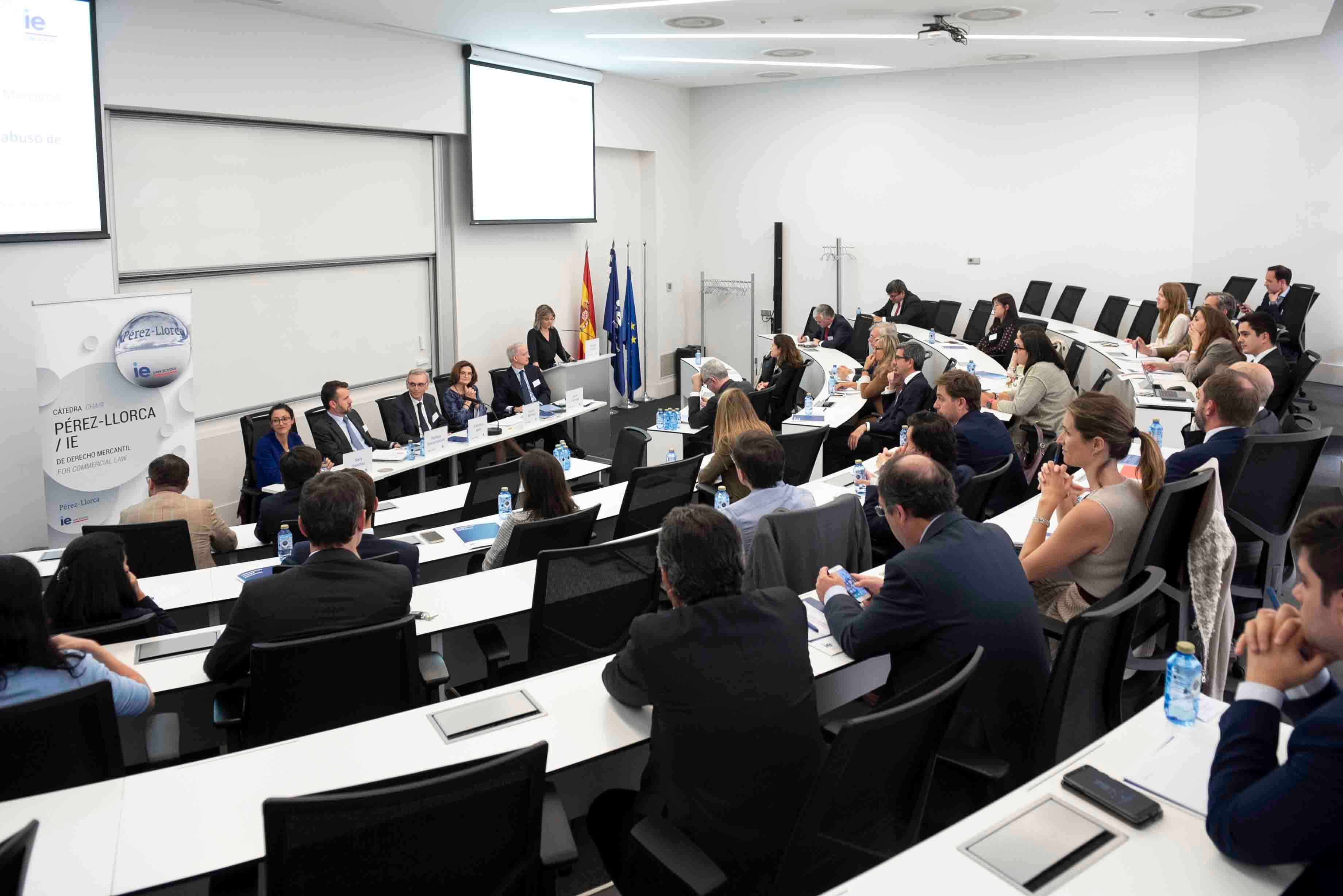The session was opened by Soledad Atienza, co-director of the Chair and Vice Dean of IE Law School, and by Francisco León, Professor of Commercial Law and Of Counsel at Pérez-Llorca, who also acted as moderator. Soledad Atienza gave a few words in homage to José Pedro Pérez-Llorca, highlighting his eminence as a lawyer and his long-standing support of the Chair.
Francisco León began by introducing the Chair and raising some preliminary points regarding the market abuse regime, stressing that this is a highly important European reform, which is aimed at solving new problems that have arisen during the financial crisis. He continued by briefly outlining the purpose of this regulation and the context of its entry into force.
Francisco León then introduced the speakers: Rodrigo Buenaventura, Director of Markets at the CNMV, and Aurora Martínez Flórez, Professor of Commercial Law, addressed the general features and principles of the market abuse regime and Sara Sánchez, Professor at IE Law School, and Javier Carvajal, Partner at Pérez-Llorca, spoke about specific issues relating to market research and takeover bids.
Rodrigo Buenaventura analysed a number of reforms and amendments to the Market Abuse Regulation and its many implementing regulations, as well as the fundamental differences between the regulation and the existing directive. He emphasised the role of ESMA in the legislative process and its development of technical standards, and their impact on the current regulation. Finally, he revealed that EU authorities are already working on a new amendment to the market abuse regime, despite the fact that the reforms only entered into force in 2014.
Aurora Martínez Flórez conducted an in-depth analysis of the ratio legis of the Market Abuse Regulation in relation to the legal rights protected by the regulation, examining the relation between concepts such as the integrity of capital markets, investor confidence and the efficiency of such markets. She ended her presentation by reflecting on the appropriateness of allowing civil liability actions to be taken against the perpetrators of market abuse.
Then, Sara Sánchez analysed the most notable aspects of the market research. She placed special emphasis on the fact that article 11 of the new Market Abuse Regulation now regulates in detail a safe harbour for the communication of inside information.
Lastly, Javier Carvajal ended the session with some practical considerations about the reform of the market abuse regulation in relation to takeover bids. Before the reform entered into force in 2014, the most widespread view regarding the treatment of inside information in the context of a takeover bid was reflected in Recital 30 of the Market Abuse Regulation: “The mere fact of having access to inside information relating to another company and using it in the context of a public takeover bid for the purpose of gaining control of that company or proposing a merger with that company should not be deemed to constitute insider dealing.” The specific rules introduced in this Regulation, such as a safe harbour, have clarified that conducting a takeover bid with information still considered to be confidential is prohibited. However, at the same time they give rise to some uncertainties regarding their application, such as determining who has the ability to make the information public, and how and when they may do so.
Before the event was brought to a close, a discussion took place in which attendees asked questions about the topics covered by the speakers, mainly related to issues such as the delay in the dissemination of information to markets by regulators.
About the Chair
The Pérez-Llorca/IE Chair on Commercial Law focuses on international legal practice. Its main objective is to produce top-tier applied research in the area of Commercial Law, as well as to share this research with law firms, businesses and law schools, through the work and joint activities carried out by IE Law School and Pérez-Llorca.
